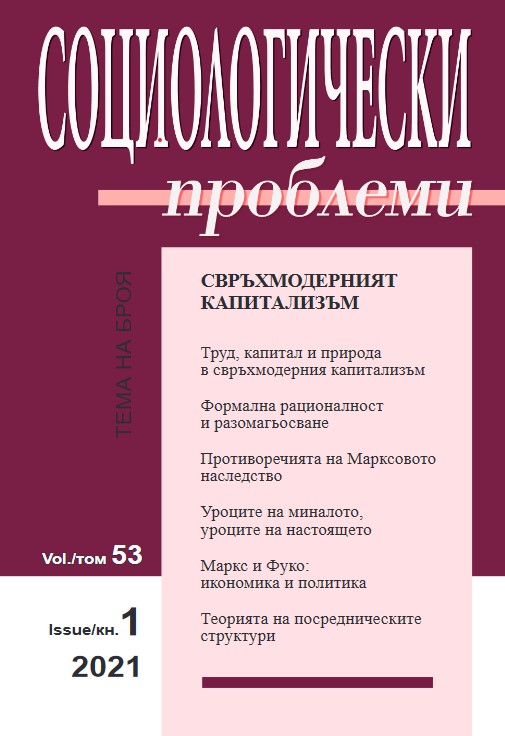За ролята, техническата организация и юридическата форма на труда в процеса на превръщане на работната сила от дейността в стока
The Part Played by Labour, but also Its Technical Organization and Juridical Form, in the Transition of Labour Power from a Service to a Commodity
Author(s): Stiliyan YotovSubject(s): Social Sciences, Sociology, Social Theory
Published by: Институт по философия и социология при БАН
Keywords: appropriation & alienation; labour process; selling labour power as a commodityvs; labour contract as a service contract
Summary/Abstract: Initially, at an abstract level, the ‘objectification’ in Marx's philosophy is discussed against the background of a more general dialectic between ‘appropriation and alienation’ characteristic of every essentially hermeneutic philosophy. Such an approach that narrows the scale of activity crystallizes then at one concrete level in the idea of labour as the universal essence of every human action and has rightly deserved criticism on the part of Aristotle, Hegel, or Arendt. The article attempts to uncover the connection of this solution with Locke's comprehensions, in which the objectifying attitude towards the world and the role of property merge into a peculiar sense of ‘one’s own’, independent of the will of others, and becomes a framework for the meaning of human activity in general. From this general statement, three inferences are offered. First, Locke's and Marx's approach is opposed to the idea borrowed by Kant that for something to be ‘own’, it does not mean to be ‘proprietary’ to its owner. Second, on the basis of Marx's wording, an opportunity for non-alienated work is stated possible, not only under the terms of the removed private property. Third, there is a disagreement with Marx's idea of the labour contract as a form of commodity-purchase of the labour power.
Journal: Социологически проблеми
- Issue Year: 53/2021
- Issue No: 1
- Page Range: 171-186
- Page Count: 16
- Language: Bulgarian
- Content File-PDF

